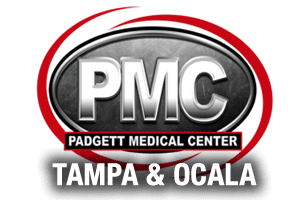ADHD is a condition that plagues thousands of adults and children in the United States. For people who suffer from ADHD, there are medications that are available which doctors can prescribe to help with the condition. So how does ADHD medication for adults work? Why exactly do stimulants and other kinds of ADHD medication help to reduce ADHD symptoms? Read on to learn more about how medication for ADD and ADHD works. Padgett Medical Center is a top medical facility in Tampa. Call Padgett Medical Center for an appointment today!
Explaining ADHD Medication For Adults
For any brain function, from smelling a flower to spelling a word, brain cells called neurons have to pass information along to each other. This process is called neurotransmission. Neurons send messages to each other through the secretion of chemicals called neurotransmitters, which are released by the tail end of the sending neuron and cross a tiny gap (called a synapse) to reach the tip of the receiving neuron. For people who have ADHD, this process may be disrupted in different ways, such as the following:
- The sending neuron may not release enough neurotransmitters
- The neurotransmitters may have trouble activating the landing pads (receptors) on the receiving neuron
- The sending neuron may suck the neurotransmitters back up before a good connection is made
All sending neurons have to vacuum up extra neurotransmitters so that they are able to get ready to send another signal, which is a process called reuptake. But in cases of ADHD, the reuptake process can happen too quickly, before the receiving neuron gets the message.
How Medication For ADD And ADHD Works
Issues with passing information from neuron to neuron can have a negative impact on attention and motivation. It also may be an explanation for other symptoms of ADHD, such as being restless and impulsive. Medication is able to lower ADHD symptoms by helping neurons pass along messages. It can make neurotransmission more efficient in many ways. Certain types of ADHD medication can help to release more neurotransmitters, while other types, called reuptake inhibitors, help to slow down the reuptake. Both of these actions can assist with more neurotransmitters reaching the next neuron. By improving neurotransmission, ADHD medication can help children and adults focus and to process and learn new information. While ADHD medication works in about eight out of ten people, it is not a “cure” for ADHD, as it can only reduce symptoms while it’s active in the body.
Types Of ADHD Medication
Stimulants and non-stimulants are the two main categories of ADHD medication. Each kind of medication targets a different neurotransmitter. Not everybody will respond equally well to different types, and often patients switch from one to the other. Both stimulants and non-stimulants can cause side effects. Two of the most common side effects are decreased appetite and trouble falling asleep.
Contact Us Today
ADHD medication for adults is designed to ease symptoms of the condition but is not a cure. To find out more about medication for ADD, call Padgett Medical Center in Tampa today.

